Friday, December 6, 2013
Posting #8-The Role of the Soviet Union in the Outbreak of WWII
In April 1939 Churchill said the guarantee system did not go far enough, and urged Chamberlain to seek an alliance with the Soviet Union. The vast majority of British and French public opinion supported this idea. But, Chamberlain, a lifelong anti-communist, had profound misgivings about concluding an Anglo-Soviet alliance. In the end, the weight of British opinion forced him to make a half-hearted attempt to gain an Anglo Soviet agreement. Chamberlain believed an alliance with the Soviet Union would arouse the suspicion of Poland and aggravate the hostility of Hitler. It was the gravity of the international situation, and the strength of public opinion which forced him to change course. In June 1939, a public opinion poll showed 84% of British people were in favour of an Anglo-Soviet Alliance. In these circumstances, Chamberlain, very reluctantly and with little real enthusiasm, agreed to open negotiations with the Soviet Union in the summer of 1939. Sir Anthony Eden offered to lead the negotiations but Chamberlain ignored the request. The diplomatic talks were conducted by Sir William Strang, a low ranking foreign office official and proved very slow and complex. The British military mission to the Soviet Union was headed by the virtually unknown Admiral Drax who took his time arriving (almost two weeks before he was in Moscow). The talks were cordial but broke down primarily because the Polish government steadfastly refused to allow Soviet troops to enter Polish territory in the event of war. However, the generally low key approach to the discussions by the British government was probably a fatal blunder which paved the way for the Nazi-Soviet Pact.
In the summer of 1939, the Soviet Union, ignored, isolated and mistrusted for most of the inter-war period, was now at the centre of European diplomacy. Everyone assumed, especially Chamberlain, that Hitler’s hostility to Soviet communism was so passionate that he would never contemplate a Nazi-Soviet Pact. This view ignored Hitler’s opportunism and his willingness to be flexible in pursuit of his foreign-policy aims. Hitler had already set September 1st 1939 as the date for the invasion of Poland, and knew that the Soviet Union was the only power which could offer and real assistance to Poland. With these considerations in mind, Hitler sent von Ribbentrop (the German foreign minister) to meet Stalin to conclude a pact with the Soviet Union. On August 23rd 1939, the Nazi-Soviet Pact was signed. Hitler saw the pact as a temporary measure, designed to frighten Britain and France out of their guarantee to Poland. For his part, Stalin was as indifferent to the fate of Poland as Chamberlain had been towards Czechoslovakia a year earlier, and wanted to keep the Soviet Union out of a war with Nazi Germany if at all possible.
Consider all the motivations for the following countries: Britain, France, Germany, Poland and the Soviet Union when responding:
What were the reasons that Britain and France forced Czechoslovakia to accept German demands? Was the Nazi-Soviet Pact the same sort of situation for Poland? Could the Poles have made better diplomatic decisions in order to prevent a future war (keep in mind the non-aggression pact signed between Poland and Germany in 1934)? What were the concerns for the Soviets during this period of time?
This Blog Posting in now open and will close on December 20th at 11pm
There has been lack of participation on this posting, as a result the deadline will be extended until December 31st.
The following students are included in this blog: Carly Dusome, Taylor Dylewski, Mitchell Hawthorne, Jennifer Huston, Adam Keating, Cameron Lejambe, Matty McLean, Brittney Murphy, Ally Musso.
Subscribe to:
Post Comments (Atom)

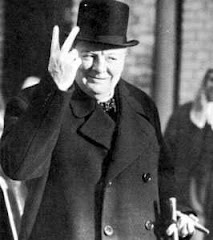
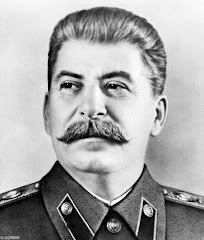
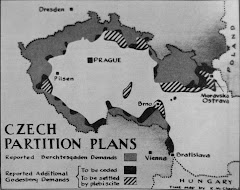
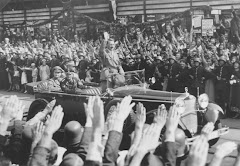

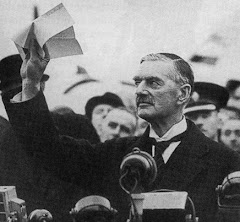
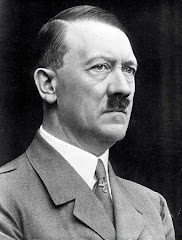




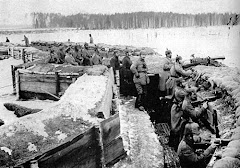


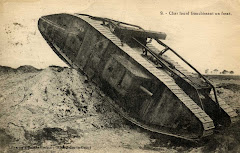



6 comments:
In 1938 when the Czechs refused to surrender the Sudetenland to Germany, Hitler ordered German generals to organise an invasion of Czechoslovakia. Britain, an ally of Czechoslovakia feared that the dispute of the Sudetenland would create global tension and commence a world war. Both Britain and France wanted to avoid war at all costs, fearing that war would result in a loss of a vast number of men as well as damage the economy. Britain and France were both recovering from WW1 and were unprepared for another global conflict, therefore they forced Czechoslovakia to accept German demands. Neville Chamberlain stated that Czechoslovakia would have to fight the Germans by themselves if the Czechs declined German requests.
In 1939 a non-aggression pact was signed between Germany and Russia. Just as the Sudetenland dispute put the Czechs into a bad situation, the Nazi-Soviet pact was an immense threat towards Poland. The Nazi-Soviet pact meant that Germany could invade Poland without the intimidation of fighting a two-front war.
What were the reasons that Britain and France forced Czechoslovakia to accept German demands? Was the Nazi-Soviet Pact the same sort of situation for Poland? Could the Poles have made better diplomatic decisions in order to prevent a future war (keep in mind the non-aggression pact signed between Poland and Germany in 1934)? What were the concerns for the Soviets during this period of time?
The Czechs didn't surrender the Sudetenland to Germany because Hitler ordered German generals to organize an invasion of Czechoslovakia. Great Britain who was an ally of Czechoslovakia feared that the Sudetenland would create tension and would lead to a future war. Which lead to a war. Britain and France did not want a war because of the fear of losing men and damage to the economy.
Post a Comment